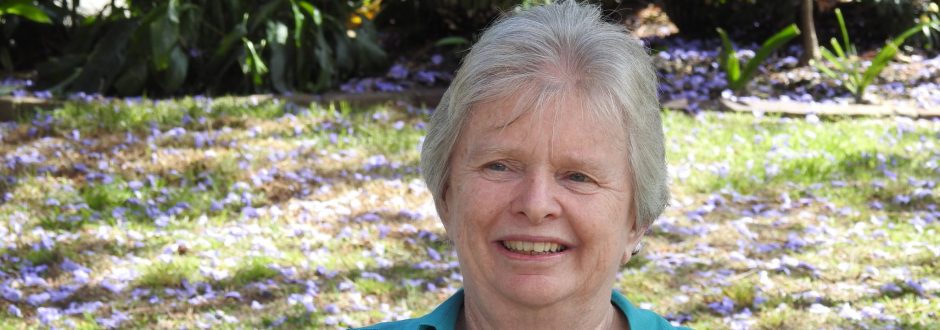Inner enemies such as jealousy, envy, revenge, obsessive guilt, pride, embittered anger can cripple my capacity to reach out to others in a spirit of reconciliation and pardon, writes Good Samaritan Sister Clare Condon.
BY Clare Condon SGS
“What does it truly mean to be commanded: ‘Thou shalt love thy neighbour as thyself’?… What would happen to a meeting of a conventual chapter [a decision making body in a religious community] – or to an abbots’ congress – if all of a sudden as an assembly we were to ‘get the point’ of ‘Love your enemies’? Wouldn’t we become an instantaneous, glorious Bedlam, with all kinds of reconciliations and pardoning exploding on all sides?”
These were the words of Father Bernardo Bonowitz, a Cistercian monk from Brazil, during his address to the Benedictine Abbots’ Congress in which I participated in Rome earlier this month. His words prompted me to wonder: what would happen to our global community if world leaders and politicians were to ‘get the point’ of “Love your enemies”?
Such thoughts led me to reflect on my own life. Who are my enemies? Do I have any? Are they all external to me? What of any internal enemies? Those that lie within that I do not love? If I cannot truly and deeply love myself, as I understand God loves me, then it follows that my inner enemies will not be reconciled or pardoned. I then found myself rethinking the meaning of the very word “enemies”.
The Cambridge Dictionary includes the following definitions: “an enemy is one who actively opposes or is hostile to another; an adversary, a combatant or a hostile nation or group; an enemy is a thing that harms or weakens something else”.
Underlying these definitions is a certain hatred, a deep disdain for the ‘other’, a pain inflicted severely upon another, particularly because of difference. An enemy is one who harms. An enemy threatens what I hold dear or value.
The enemies that lie within me can be either psychological or spiritual. Such inner enemies as jealousy, envy, revenge, obsessive guilt, pride, embittered anger can cripple my capacity to reach out to others in a spirit of reconciliation and pardon. If I am to have any chance of engaging positively and effectively in a loving way with any external enemies, I need to embrace these inner responses and bring them to healing and reconciliation, to mercy and compassion within myself.
During the Abbots’ Congress, at a Papal audience, Pope Francis explored a similar theme and called communities “oases of spirituality” where people can obtain that mercy. He said: “Indeed, at this time and in this Church, called to focus increasingly on the essential thing, monks and nuns are guardians, by your vocation, of a particular gift and of a special responsibility: that of keeping alive the oases of the Spirit, where pastors and faithful are able to draw from the wells of divine mercy”.
In other words, Pope Francis called us to create places and environments of reconciliation and pardon; places where fractured relationships can be healed. This has been a consistent theme of Pope Francis in his leadership of the Catholic Church. He chose an image of the Good Samaritan as the official Vatican medal for the Year of Mercy.
Father Bernardo, in his address at the Abbots’ Congress, also referred to this challenging parable of Jesus. He said: “We dare not cross to the other side of the road when a brother [or sister] has been assaulted, interiorly or exteriorly. For a monastic community to live in communion today, it is imperative that every member participate in the cura pastoralis, above all in the cura, the ‘caring’.”
This is a stark comment, not only for religious communities, but for all who profess to be Christian. I ask myself, and you, too: who in our daily lives do we pass by on the other side? For it is easier to ignore someone than to greet them. Is it a family member, a community member, a parishioner, a person of different ethnicity or religious belief, a homeless person, a complainer, a self-absorbed person, an angry workmate or even a child or a spouse?
The enmities on the larger scale of nations can only be addressed if each and every one of us begins to take seriously the command “Love your neighbour as yourself” and dares to “get the point”. Demanding though it be, it is the imperative of the Christian life and so needed in our polarised global world today.
